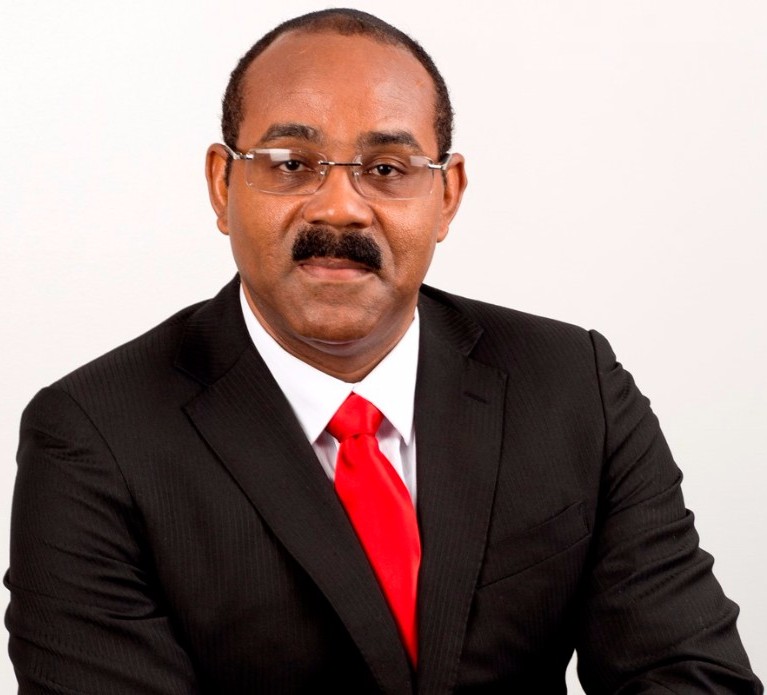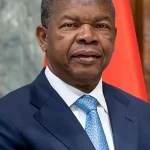Introduction
Gaston Browne is the current Prime Minister of Antigua and Barbuda, a twin-island nation in the Caribbean. Since assuming office in 2014, Browne has played a central role in shaping the country’s economic and political landscape. A dynamic leader with a strong focus on economic development, tourism, and financial services, Browne has pursued an ambitious agenda to modernize Antigua and Barbuda’s economy, reduce public debt, and promote regional cooperation. He is the leader of the Antigua and Barbuda Labour Party (ABLP) and is recognized for his bold and sometimes controversial policies, aimed at ensuring the nation’s long-term prosperity.
Early Life and Education
Gaston Alfonso Browne was born on February 9, 1967, in the village of Point, on the island of Antigua, which is part of Antigua and Barbuda. He came from humble beginnings, growing up in a disadvantaged community and facing economic hardships as a child. However, his determination to overcome these challenges propelled him to excel academically and professionally.
Browne received his early education in Antigua before earning a scholarship to attend the City Banking College in the United Kingdom. There, he pursued studies in banking, economics, and finance, which later formed the foundation for his career in finance and politics. He holds a Master’s degree in Business Administration (MBA) from the University of Manchester.
Career in Finance and Business
Before entering politics, Gaston Browne built a successful career in banking and real estate. He worked as a banking executive for Swiss American Banking Group and later ventured into entrepreneurship, becoming a prominent businessman in Antigua and Barbuda. Browne’s financial background gave him significant insight into economic matters, which later influenced his political strategies, particularly his emphasis on economic growth, debt reduction, and investment.
Political Career
Browne’s political journey began with his involvement in the Antigua and Barbuda Labour Party (ABLP), one of the two main political parties in the country. He entered the political arena in the early 2000s and quickly rose through the ranks, demonstrating strong leadership skills and a deep understanding of the country’s socioeconomic challenges.
In 1999, Browne was elected to the House of Representatives for the first time, representing the St. John’s City West constituency. He quickly became a prominent figure within the ABLP, gaining respect for his sharp economic acumen and his ability to connect with voters. After serving in various capacities within the party and the government, including as Minister of Planning and Trade, Browne was chosen as the ABLP’s leader in 2012.
Prime Ministership
In 2014, Browne led the ABLP to a decisive victory in the general election, ending a ten-year rule by the United Progressive Party (UPP) and becoming the Prime Minister of Antigua and Barbuda. His election was seen as a turning point for the country, as Browne promised to revitalize the economy and reduce the national debt, which had ballooned under previous administrations.
Economic Policies
Upon taking office, Browne immediately prioritized economic development, focusing on attracting foreign investment, bolstering tourism, and reducing public debt. One of his major economic policies has been promoting Antigua and Barbuda as an attractive destination for foreign investors, particularly through the Citizenship by Investment Program (CIP). This program allows wealthy individuals to acquire Antiguan citizenship in exchange for significant investments in the country’s economy, such as real estate, business ventures, or contributions to government projects.
Browne’s government has also pursued policies to strengthen Antigua and Barbuda’s tourism industry, which is the backbone of the economy. Under his leadership, the country has seen an increase in luxury resort developments and expanded infrastructure to accommodate a growing number of tourists. Tourism remains a key pillar of Browne’s economic agenda, as it drives job creation and revenue generation.
Another significant focus of Browne’s government has been reducing public debt. When he took office, Antigua and Barbuda’s debt was at unsustainable levels. Through debt restructuring, renegotiating with international creditors, and fiscal discipline, Browne’s administration has been able to reduce the debt-to-GDP ratio, providing more financial stability for the country.
Leadership in Climate Resilience
Antigua and Barbuda, like other Caribbean nations, is highly vulnerable to the effects of climate change, including rising sea levels and stronger hurricanes. As Prime Minister, Browne has been an outspoken advocate for global climate action. He has represented his country at international climate conferences and called for stronger commitments from developed nations to provide financial and technical assistance to small island developing states (SIDS), which are disproportionately affected by climate change.
Browne has also taken steps to improve the resilience of Antigua and Barbuda’s infrastructure, advocating for more sustainable development practices and renewable energy initiatives to reduce the nation’s reliance on fossil fuels.
COVID-19 Pandemic Response
During the COVID-19 pandemic, Browne’s leadership was put to the test as Antigua and Barbuda, like many other nations, faced severe economic disruptions, particularly in the tourism sector. Browne’s government implemented strict health measures, including lockdowns, curfews, and the promotion of vaccinations, to control the spread of the virus.
To mitigate the economic impact, Browne sought international financial assistance and pushed for the safe reopening of the country’s borders to tourists. Despite the challenges, his administration managed to maintain a degree of stability, although the pandemic exposed the vulnerability of the country’s heavy dependence on tourism.
Controversies and Criticisms
Throughout his tenure, Browne has faced criticism and controversy. His strong support for the Citizenship by Investment Program, while bringing in significant revenue, has raised concerns about transparency, national security, and the sale of citizenship to wealthy foreign individuals. Critics have argued that the program could undermine the country’s sovereignty and be exploited by those seeking to avoid legal scrutiny in their home countries.
Browne has also been criticized for his confrontational style in dealing with political opponents and members of the media. He is known for his assertive and sometimes combative rhetoric, which has led to accusations of authoritarian tendencies. Nevertheless, Browne remains a popular leader, particularly among those who credit him for improving the nation’s economic outlook.
International Relations
Browne has worked to strengthen Antigua and Barbuda’s international relationships, particularly with regional Caribbean nations and global powers like the United States and China. Under his leadership, the country has sought to diversify its diplomatic ties, securing investment and aid from a variety of sources.
Browne has also played an active role in regional organizations such as the Caribbean Community (CARICOM) and the Organization of Eastern Caribbean States (OECS), where he has advocated for greater regional integration and cooperation on issues such as climate change, trade, and regional security.
Conclusion
Gaston Browne’s tenure as Prime Minister of Antigua and Barbuda has been marked by bold economic reforms, an assertive foreign policy, and a strong focus on debt reduction and foreign investment. While his policies have sparked both praise and controversy, there is no doubt that Browne has left a significant impact on his country’s development. As Antigua and Barbuda continues to navigate the challenges of a globalized world, climate change, and economic uncertainty, Browne’s leadership will play a critical role in shaping the nation’s future trajectory.



